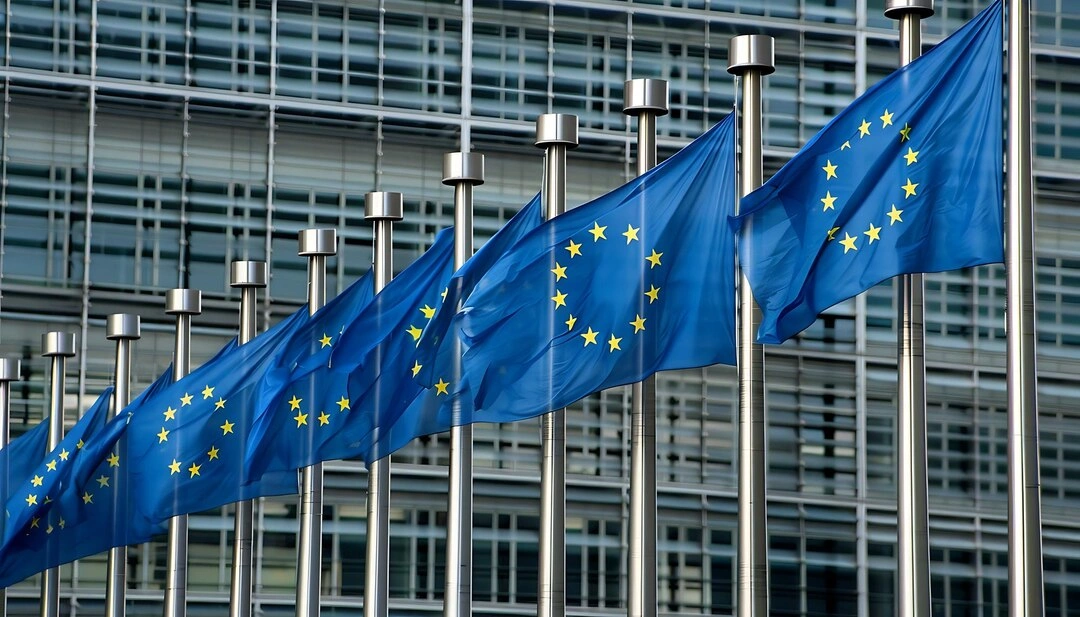AI
Deep Tech
Innovation
EU Funding

AI
Deep Tech
Innovation
EU Funding
The European Union (EU) has announced a significant investment of €1.4 billion (approximately $1.5 billion USD) in deep tech for the year 2025. This substantial commitment, channeled through the European Innovation Council (EIC), signals a major push by the EU to strengthen its position in cutting-edge technologies like artificial intelligence (AI) and other strategic sectors. Currently, these fields are largely dominated by global tech giants based in the United States and China.
This ambitious investment represents a €200 million increase compared to the EIC's 2024 budget. The decision underscores the EU's recognition of technology and AI as pivotal drivers of economic growth and global competitiveness. The move comes at a time when the EU is actively seeking to revitalize its economy and enhance its standing on the world stage. Commissioner Iliana Ivanova hailed the EIC’s expanded role, describing it as a "gamechanger" with the potential to unlock groundbreaking innovations within Europe.
A Deeper Dive into the EIC's 2025 Plans:
A cornerstone of the EIC's 2025 strategy is the launch of the EIC Strategic Technologies for Europe Platform (STEP) Scale-up scheme. This program is specifically designed to bolster Europe's deep tech capabilities by providing significantly larger investments than previously available. Starting with a €300 million budget in 2025, the STEP Scale-up scheme is projected to grow to €900 million by 2027. The initiative aims to support crucial technological advancements within the EU and reduce reliance on technologies developed outside the EU.
The STEP Scale-up scheme will offer equity funding ranging from €10 million to €30 million per company. A key feature of this funding is its focus on leveraging private sector investment. It's anticipated that each project receiving EU funding will attract an additional €50 million to €150 million in co-investment from private sources, thereby significantly amplifying the overall impact.
Beyond STEP: Expanding Support for Innovation
The EIC's 2025 program also includes updates to existing support mechanisms. The EIC Challenges program, for instance, will receive a €120 million allocation to promote the development of emerging technologies. These technologies span a diverse range of sectors, including autonomous robotics, sustainable agricultural practices, waste conversion technologies, and advanced medical diagnostics.
Furthermore, an additional €250 million is earmarked for early-stage companies pursuing high-potential projects in areas such as generative AI, agri-tech (agriculture technology), and innovative mobility solutions. This targeted funding aims to nurture promising start-ups and accelerate the development of crucial technologies within these strategically important sectors.
Business Acceleration and Wider Access to Funding
The EIC is also expanding its Business Acceleration Services. These services are designed to provide essential support to emerging companies, particularly those located in regions with historically lower levels of research and innovation activity. By enhancing access to these services, along with the introduction of new "Seals of Excellence" across various categories, the EIC aims to support a broader spectrum of start-ups and scale-ups. This expanded support will help these companies access complementary and alternative funding sources, including EU Cohesion Funds, thereby broadening their access to capital.
The EIC's Track Record and Future Ambitions
Since its establishment in March 2021, the EIC has rapidly become a central pillar in the development of Europe's technology ecosystem. As part of the broader Horizon Europe initiative, the EIC has already provided backing to over 630 companies and 450 research projects. The total budget allocated to the EIC under Horizon Europe for the period 2021-2027 exceeds €10 billion.
The EIC Fund, the investment arm of the EIC, has directly invested €1 billion in deep tech start-ups. Remarkably, this direct investment has catalyzed more than four times that amount (€4 billion) in co-investments from private partners. This makes the EIC Fund the largest deep tech co-investment initiative in Europe, demonstrating its success in attracting private capital to support innovative ventures.
The Significance of the Investment:
The €1.4 billion investment represents a significant commitment by the EU to reshape its technological landscape. By focusing on deep tech, AI, and other strategic technologies, the EU is aiming to reduce its reliance on external sources of technology and establish itself as a global leader in innovation. The initiative’s multifaceted approach, combining direct funding, support services, and private sector partnerships, positions the EU to foster a vibrant and competitive deep tech ecosystem capable of driving economic growth and ensuring technological independence. The ambitious scale of the investment, coupled with its strategic focus on key technological areas, signals a decisive move by the EU to become a major player in the global technology arena.
The increased funding for the EIC also underscores the EU’s recognition of the crucial role that innovation plays in achieving its broader economic and social goals. By investing in deep tech and supporting high-growth start-ups, the EU aims to create new jobs, stimulate economic growth, and improve the overall quality of life for its citizens.
The emphasis on supporting companies in regions with less developed research and innovation infrastructure is particularly noteworthy. This targeted approach helps to address regional disparities and foster a more balanced and inclusive technological development across the EU.
The success of this initiative will depend on several factors, including the effective implementation of the various programs, the ability to attract and retain top talent, and the continued support of the private sector. However, the sheer scale of the investment and the comprehensive nature of the strategy suggest that the EU is fully committed to becoming a global leader in deep tech and AI. The combined impact of the EIC's direct investments, the leveraging of private capital, and the extensive support services promises to catalyze a significant wave of innovation within the European Union. The coming years will be crucial in evaluating the effectiveness of this large-scale investment and its impact on the EU's technological competitiveness on a global scale. The long-term success of the initiative will depend on the ability of the EIC to select and support the most promising ventures, to navigate the complexities of the global tech market, and to continually adapt its strategies to the rapidly evolving technological landscape.
SHARE



news
30th October 2024


news
30th October 2024

news
30th October 2024

news
30th October 2024


news
30th October 2024

news
30th October 2024

news
30th October 2024